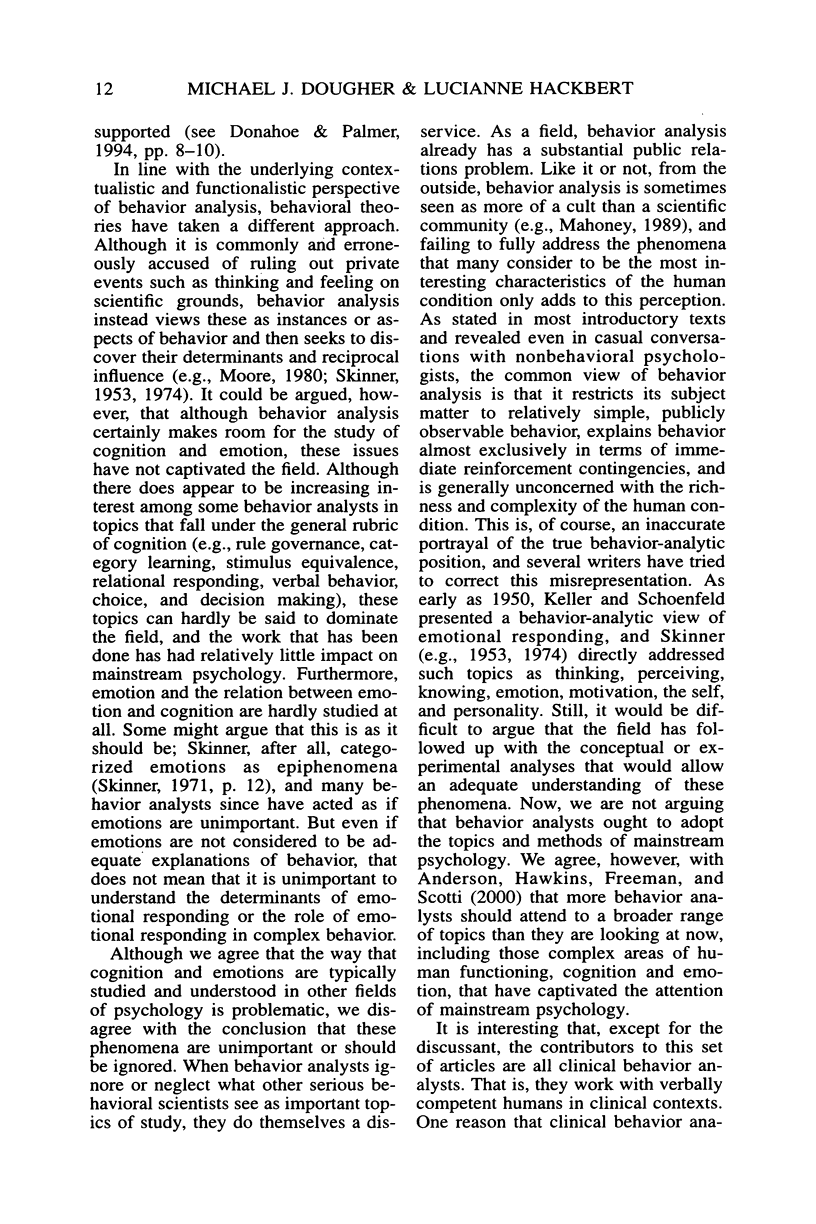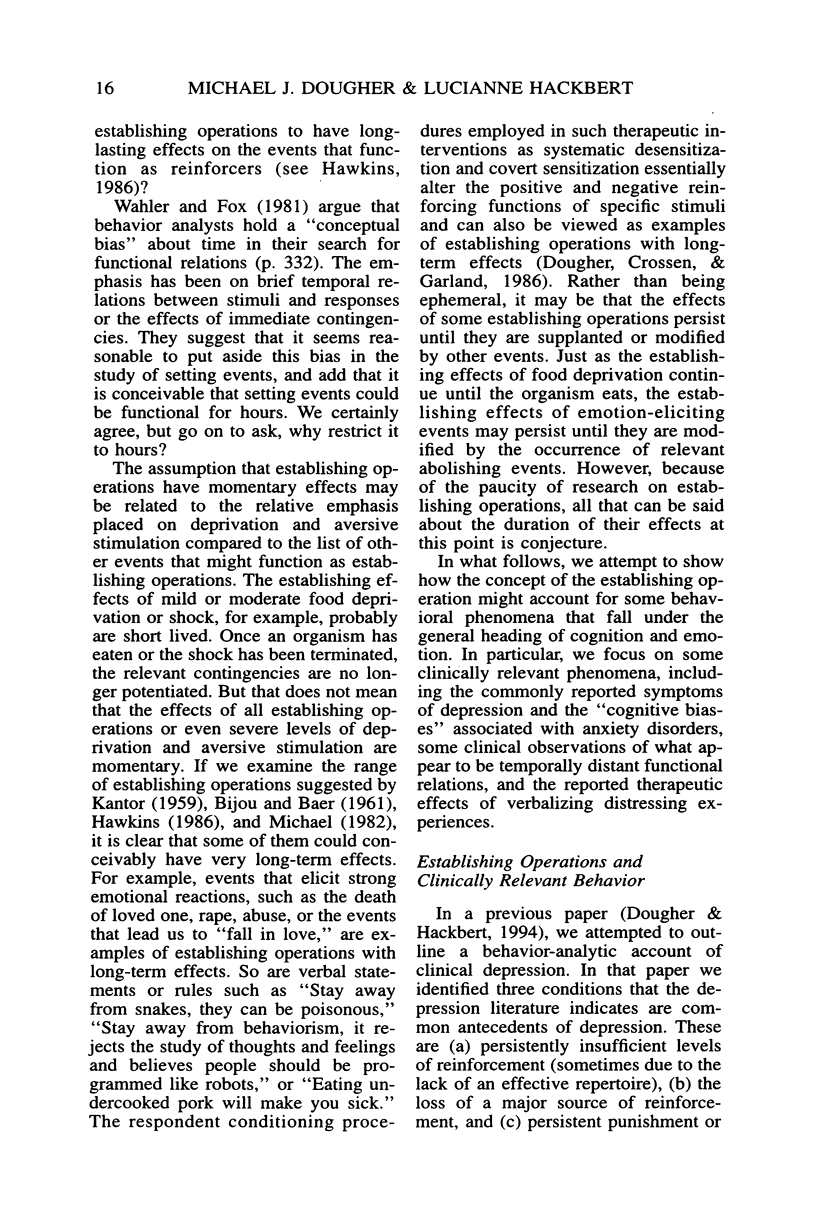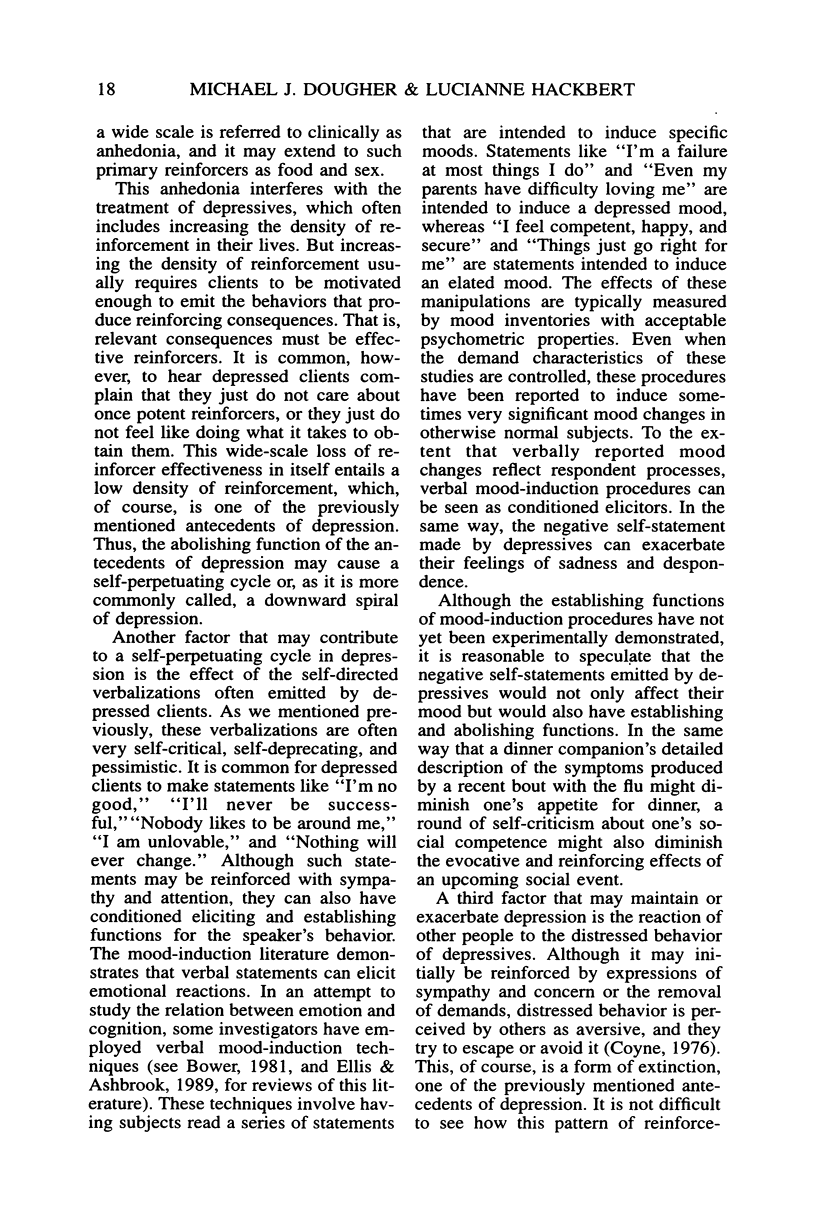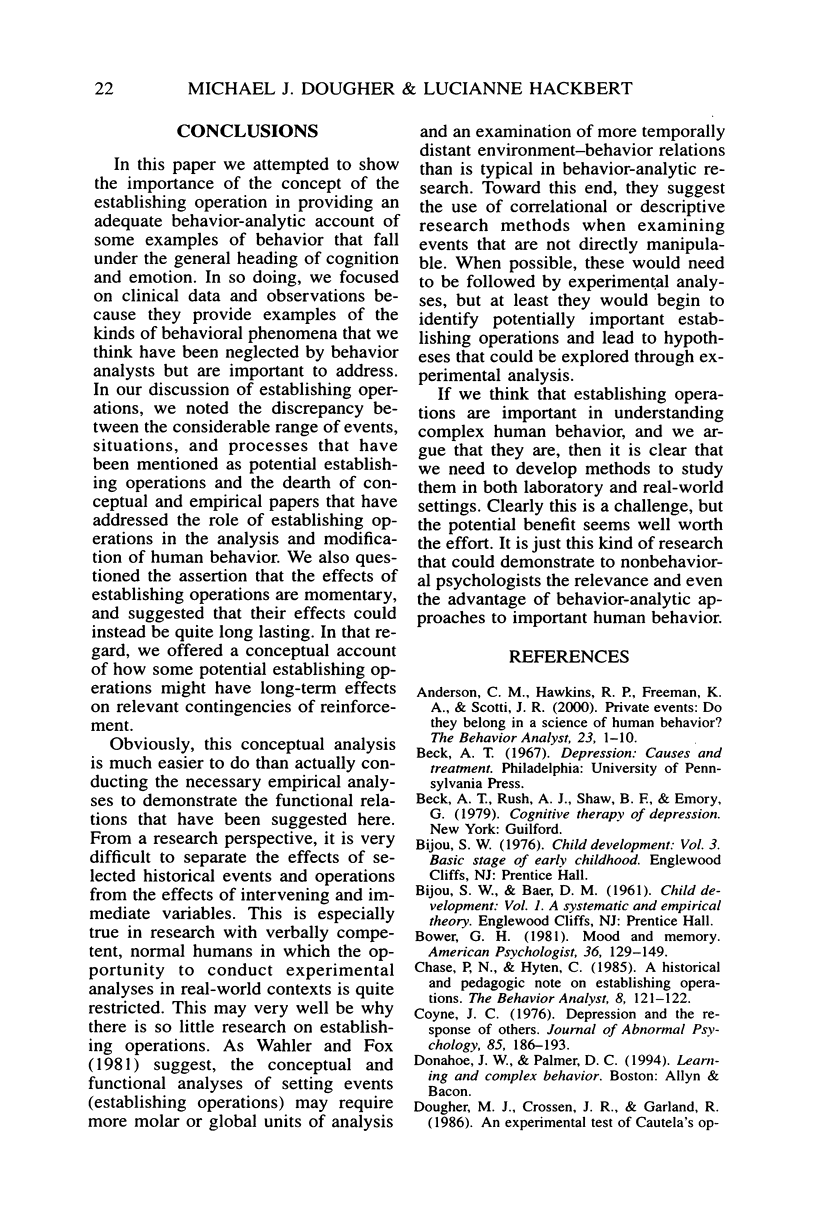Abstract
In this paper we argue that behavior analysts have tended to neglect the study of important aspects of complex human behavior, including cognition and emotion. This relative neglect has been costly in terms of mainstream psychology's perception of the field of behavior analysis and in terms of our ability to provide a more thorough account of human behavior. Observations and findings from the clinical context are offered as examples of behavior that are not readily explained by the three-term contingency, and we argue that an adequate account of these behaviors must include principles derived from recent behavior-analytic work, in particular a better understanding of the short- and long-term effects of establishing operations. The concept of the establishing operation and its implications for understanding complex human behavior are discussed.
Keywords: establishing operations, setting events, emotion, cognition, three-term contingency
Full text
PDF













Selected References
These references are in PubMed. This may not be the complete list of references from this article.
- Anderson C. M., Hawkins R. P., Freeman K. A., Scotti J. R. Private events: Do they belong in a science of human behavior? Behav Anal. 2000 Spring;23(1):1–10. doi: 10.1007/BF03391995. [DOI] [PMC free article] [PubMed] [Google Scholar]
- Bower G. H. Mood and memory. Am Psychol. 1981 Feb;36(2):129–148. doi: 10.1037//0003-066x.36.2.129. [DOI] [PubMed] [Google Scholar]
- Chase P. N., Hyten C. A historical and pedagogic note on establishing operations. Behav Anal. 1985 Spring;8(1):121–122. doi: 10.1007/BF03391918. [DOI] [PMC free article] [PubMed] [Google Scholar]
- Coyne J. C. Depression and the response of others. J Abnorm Psychol. 1976 Apr;85(2):186–193. doi: 10.1037//0021-843x.85.2.186. [DOI] [PubMed] [Google Scholar]
- Dougher M. J., Hackbert L. A behavior-analytic account of depression and a case report using acceptance-based procedures. Behav Anal. 1994 Fall;17(2):321–334. doi: 10.1007/BF03392679. [DOI] [PMC free article] [PubMed] [Google Scholar]
- Ellis H. C., Ottaway S. A., Varner L. J., Becker A. S., Moore B. A. Emotion, motivation, and text comprehension: the detection of contradictions in passages. J Exp Psychol Gen. 1997 Jun;126(2):131–146. doi: 10.1037//0096-3445.126.2.131. [DOI] [PubMed] [Google Scholar]
- Fowler S. A., Baer D. M. "Do I have to be good all day? The timing of delayed reinforcement as a factor in generalization. J Appl Behav Anal. 1981 Spring;14(1):13–24. doi: 10.1901/jaba.1981.14-13. [DOI] [PMC free article] [PubMed] [Google Scholar]
- Leigland S. On "Setting events" and related concepts. Behav Anal. 1984 Spring;7(1):41–45. doi: 10.1007/BF03391884. [DOI] [PMC free article] [PubMed] [Google Scholar]
- McNally R. J. Cognitive bias in the anxiety disorders. Nebr Symp Motiv. 1996;43:211–250. [PubMed] [Google Scholar]
- Michael J. Distinguishing between discriminative and motivational functions of stimuli. J Exp Anal Behav. 1982 Jan;37(1):149–155. doi: 10.1901/jeab.1982.37-149. [DOI] [PMC free article] [PubMed] [Google Scholar]
- Michael J. Establishing operations. Behav Anal. 1993 Fall;16(2):191–206. doi: 10.1007/BF03392623. [DOI] [PMC free article] [PubMed] [Google Scholar]
- Pennebaker J. W., Colder M., Sharp L. K. Accelerating the coping process. J Pers Soc Psychol. 1990 Mar;58(3):528–537. doi: 10.1037//0022-3514.58.3.528. [DOI] [PubMed] [Google Scholar]
- Rincover A., Koegel R. L. Setting generality and stimulus control in autistic children. J Appl Behav Anal. 1975 Fall;8(3):235–246. doi: 10.1901/jaba.1975.8-235. [DOI] [PMC free article] [PubMed] [Google Scholar]
- Wahler R. G., Fox J. J. Setting events in applied behavior analysis: Toward a conceptual and methodological expansion. J Appl Behav Anal. 1981 Fall;14(3):327–338. doi: 10.1901/jaba.1981.14-327. [DOI] [PMC free article] [PubMed] [Google Scholar]
- Wahler R. G., Fox J. J. Solitary toy play and time out: a family treatment package for children with aggressive and oppositional behavior. J Appl Behav Anal. 1980 Spring;13(1):23–39. doi: 10.1901/jaba.1980.13-23. [DOI] [PMC free article] [PubMed] [Google Scholar]
- Wahler R. G. The insular mother: her problems in parent-child treatment. J Appl Behav Anal. 1980 Summer;13(2):207–219. doi: 10.1901/jaba.1980.13-207. [DOI] [PMC free article] [PubMed] [Google Scholar]
- Wilson K. G., Hayes S. C. Why it is crucial to understand thinking and feeling: An analysis and application to drug abuse. Behav Anal. 2000 Spring;23(1):25–43. doi: 10.1007/BF03391997. [DOI] [PMC free article] [PubMed] [Google Scholar]


